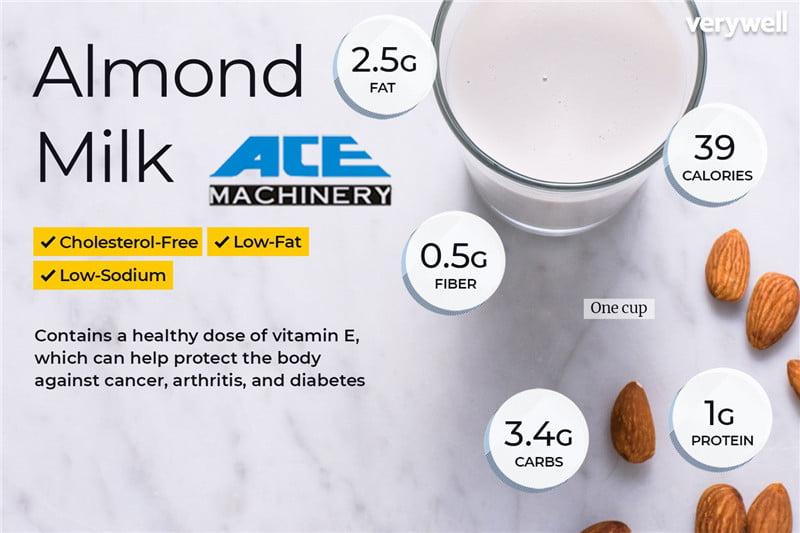Almond milk has become increasingly popular in recent years as a healthy alternative to cow's milk, and is widely consumed by people on vegan or plant-based diets, those with lactose intolerance, and those who simply prefer the taste. However, amidst its growing popularity, there is often confusion and misinformation about the health benefits and drawbacks of almond milk.
Is almond milk good for you?
Almond milk has become increasingly popular in recent years as a dairy-free alternative to traditional cow’s milk. Made from ground almonds and water, almond milk has a creamy texture and a slightly nutty flavor. But is it good for you? Let’s explore its nutritional benefits and considerations.
One of the main benefits of almond milk is its low calorie content. Compared to cow’s milk, almond milk is significantly lower in calories, making it a good option for those watching their weight or following a low-calorie diet. It is also free of the cholesterol and saturated fats commonly found in whole cow’s milk.
Almond milk is naturally lactose-free, making it an excellent alternative for people who are lactose intolerant or have trouble digesting dairy products. Lactose intolerance affects a significant proportion of the population, and almond milk offers a solution for those looking for a milk substitute without the inconvenience of digestive problems.
Also, almond milk is a good source of vitamin E, which acts as an antioxidant in the body, helping to protect cells from damage caused by free radicals. Vitamin E also supports immune function and promotes healthy skin.
It is important to note, however, that almond milk is not a significant source of protein. While cow’s milk is known for its protein content, almond milk contains only a small amount of protein. If you rely heavily on milk as a source of protein, you may need to supplement your diet with other protein-rich foods.
When choosing almond milk, look for unsweetened varieties. Flavored and sweetened almond milks often contain added sugar, which can contribute to excess calorie intake and may not be suitable for people with conditions such as diabetes or who are trying to reduce their sugar intake. Reading labels and opting for natural, unsweetened almond milk is the best choice for those concerned about added sugar.
It’s also worth noting that almond milk may not be suitable for people with nut allergies. Allergies to tree nuts, including almonds, can cause severe and even life-threatening reactions. If you have a nut allergy, it is important to avoid almond milk and opt for non-dairy alternatives such as soy or oat milk.
In conclusion, almond milk can be a nutritious choice for people looking for a dairy-free alternative. It is low in calories, cholesterol-free and a good source of vitamin E. However, it is important to consider its relatively low protein content and potential allergenic for those with nut allergies. As with any food, moderation and choosing the right type of almond milk is key to enjoying its benefits. So if you’re looking to change up your dairy routine, almond milk can be a healthy and tasty option!


